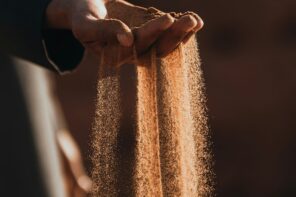Alongside undying politeness and hockey culture, maple syrup is perhaps the most common association made with Canadians. And for good reason; Canada is the indisputable king of maple syrup, representing over 71% of the global market. That said, one province remains on top, as a staggering 92% of Canada’s global maple syrup market share can be attributed to production from Quebec.
Although Quebec’s maple syrup clout may be well known to most, the complex regulations and hurdles of the industry are likely not. The maple syrup business within Quebec is controlled by the Federation of Quebec Maple Syrup Producers, or FQAP. The FQAP is a government sanctioned cartel, setting and enforcing quotas and limitations on Quebecois syrup producers. Most importantly, the Federation is exclusively responsible for bulk sales of maple syrup, which account for the vast majority of production. The only exemptions from FQAP regulations are direct to consumer sales, though these only represent a small portion of syrup production.
“the Federation is exclusively responsible for bulk sales of maple syrup, which account for the vast majority of production”
As a cartel, the Federation keeps a strategic reserve of up to 40 million pounds of maple syrup at undisclosed warehouses around rural Quebec towns. The reserve’s purpose is to maintain control of maple syrup prices and sustain the market through seasons of poor harvest. The reserve was famously the target of a heist for 18 million dollars worth of maple syrup in 2012. While the reserve is interesting, it is not one of the FQAP’s more controversial practices.
The contentious regulations of the FQAP are those that have a direct effect on the profitability of Quebec syrup producers, who have little choice but to adhere. As the sole entity responsible for bulk sales, the Federation sets the price on maple syrup purchases. Furthermore, the FQAP assigns quotas to each producer. According to a report from the Montreal Economic Institute, producers are paid proportionally to the annual production sold. If the full production is not sold for that year, the producers are not paid in full until the inventory is sold later. The report, from 2018, cites 2009 as the last year where all annual production was sold, meaning full payments have been hard to receive for producers. Aside from quotas, producers also pay mandatory fees for the marketing that the Federation does. Under FQAP rules, the Federation is responsible for maple syrup marketing regardless of whether producers would rather do so themselves. Finally, producers can be subject to fines and penalties should they violate the guidelines set by the FQAP.
“producers are paid proportionally to the annual production sold. If the full production is not sold for that year, the producers are not paid in full until the inventory is sold later”
While the Federation began as a way to protect the rights of producers, its current practices are arguably hurting producers and Quebec’s hold on the maple syrup market. Numerous producers have been fined up to hundreds of thousands of dollars for sales of maple syrup that the FQAP deemed illegal. In 2016, the provincial government released a report which proposed ending the FQAP’s monopoly on maple syrup, citing a significant drop in Quebec’s global maple syrup market share. More so than that, Foreign competition in the maple syrup industry has been on the rise while the FQAP is busy policing local producers. While Quebec’s market share remains dominant, it has become less so over time. In 2003, Quebec producers accounted for over 80 percent of the maple syrup market share, a figure that has dropped by over 10% in recent years and the FQAP’s system may be to blame for this drop. As the Montreal Economic Institute’s report points out; foreign producers enjoy price stability without the imposition of quotas and fees.
“As the Montreal Economic Institute’s report points out; foreign producers enjoy price stability without the imposition of quotas and fees.”
It’s unquestionable that the FQAP has played a leading role in legitimizing the maple syrup industry and giving stability to local producers. Though rising competition and struggling local producers have given way to credible arguments monopolistic Quebecois maple syrup system. If Quebec wants to remain on top of the industry, they may need to rethink how business is done at home.








